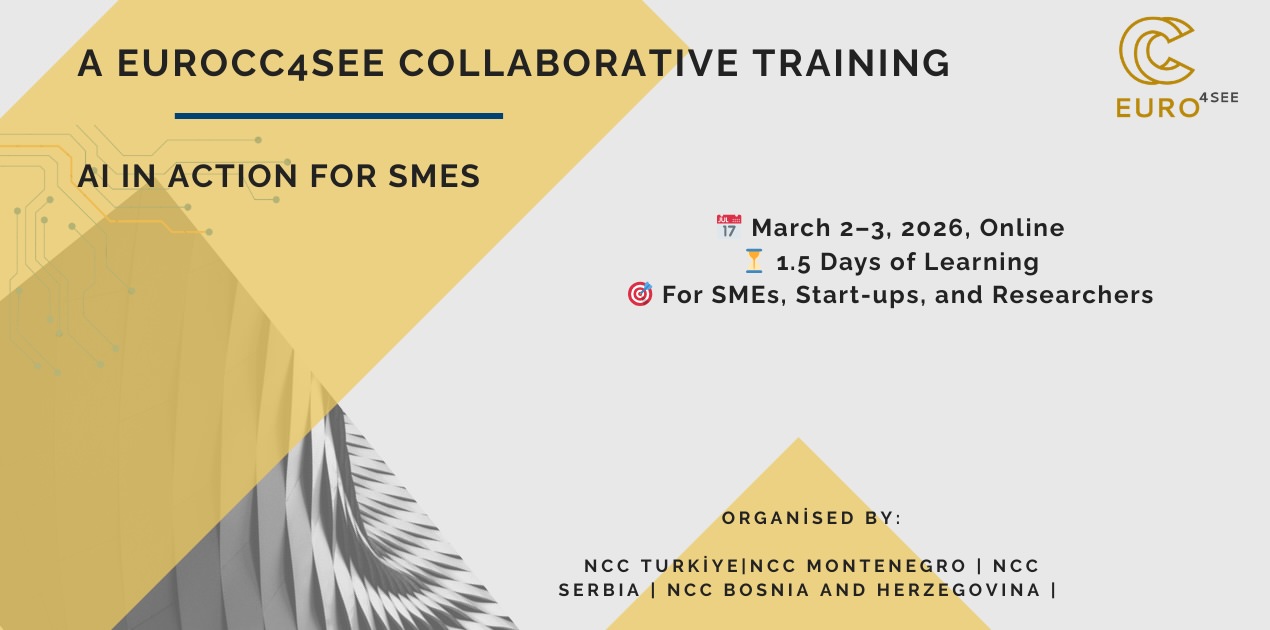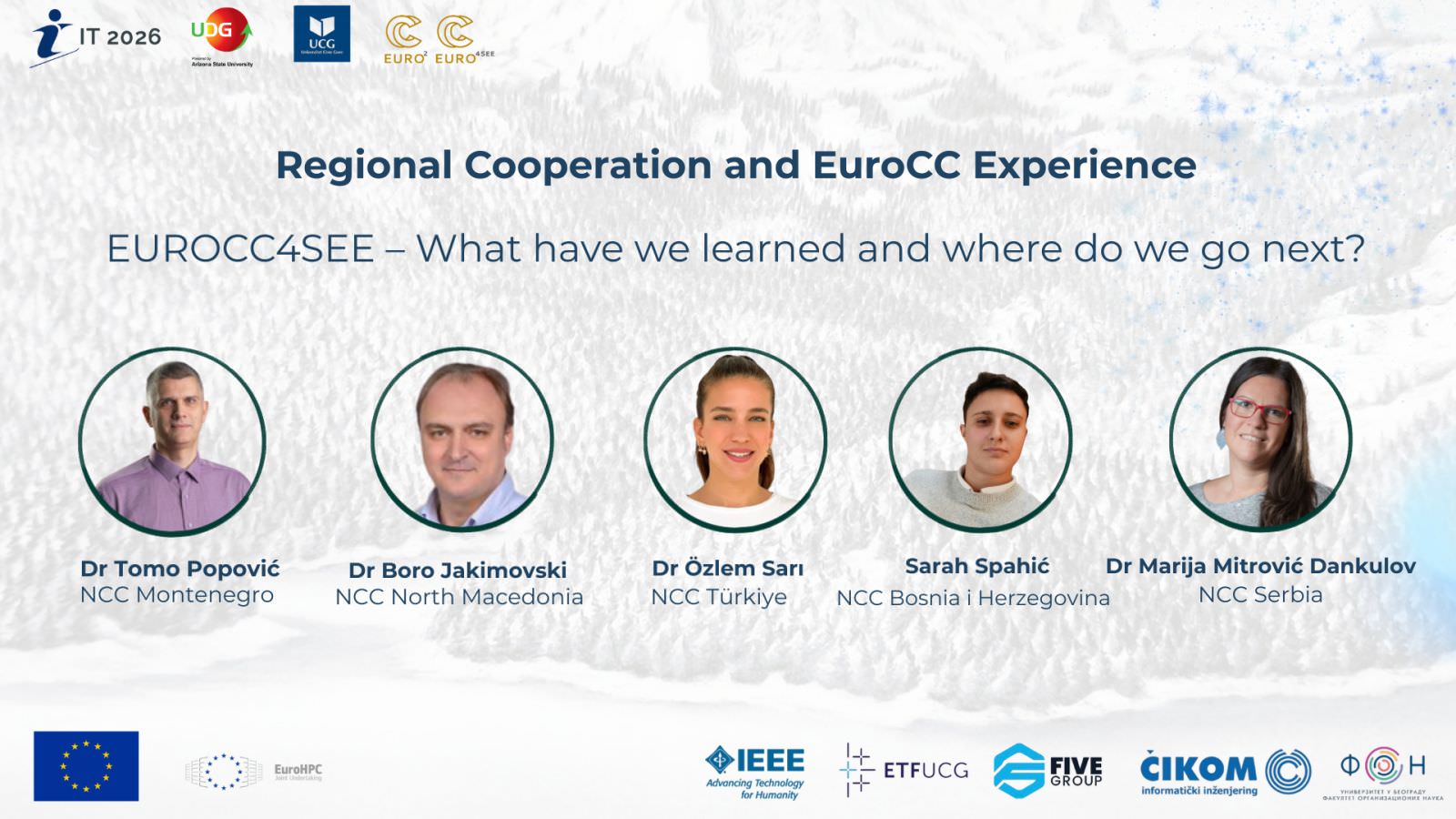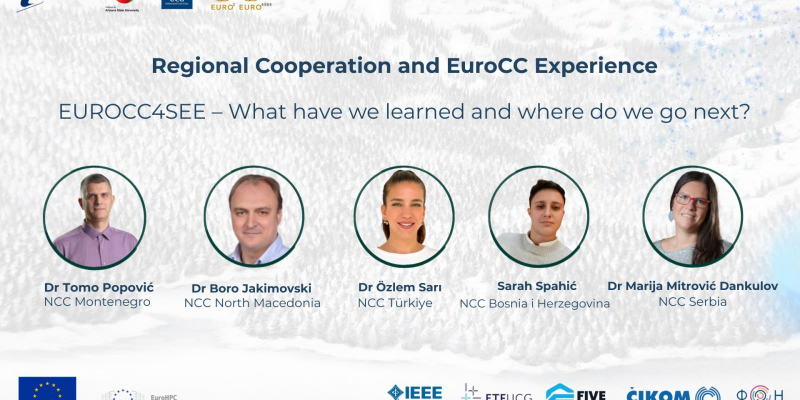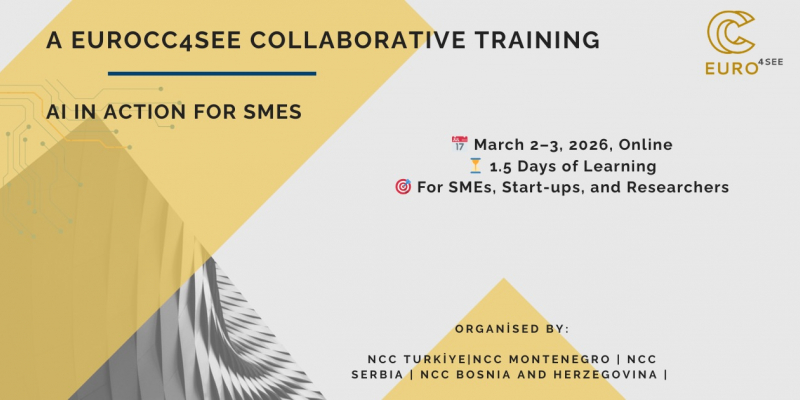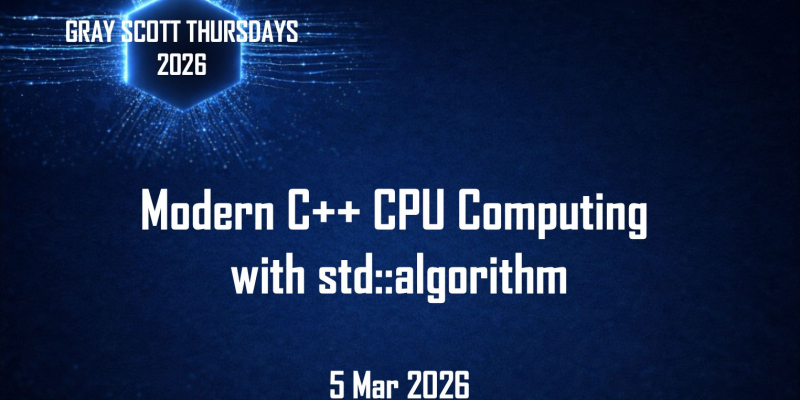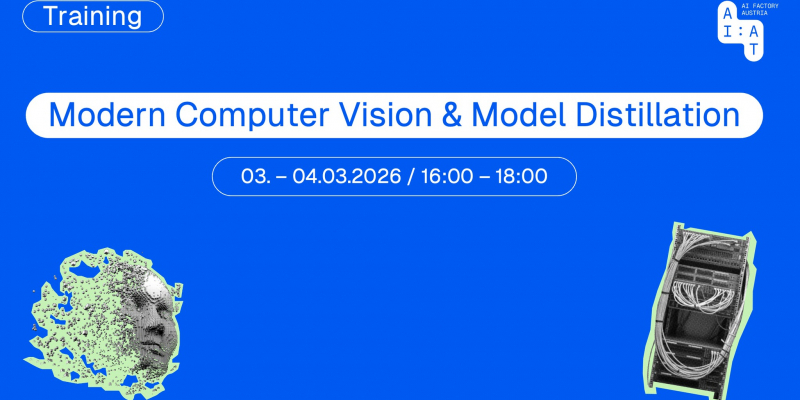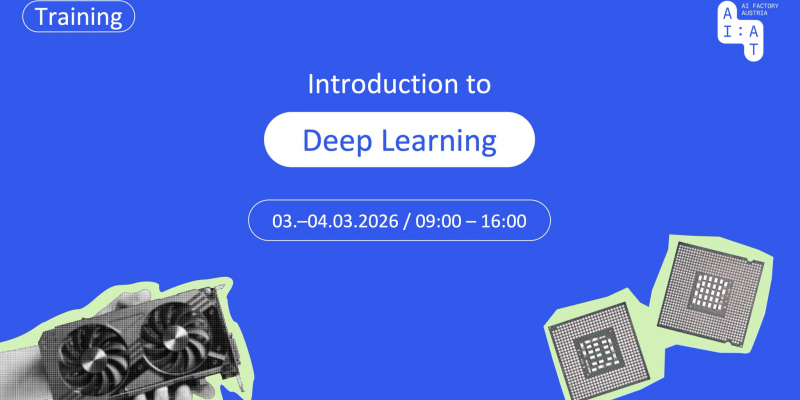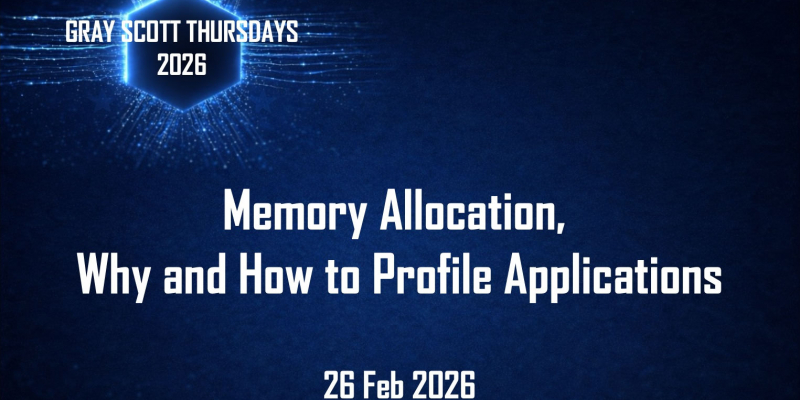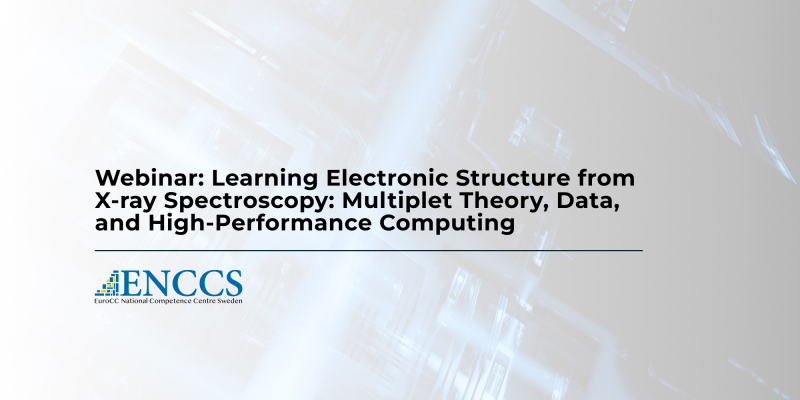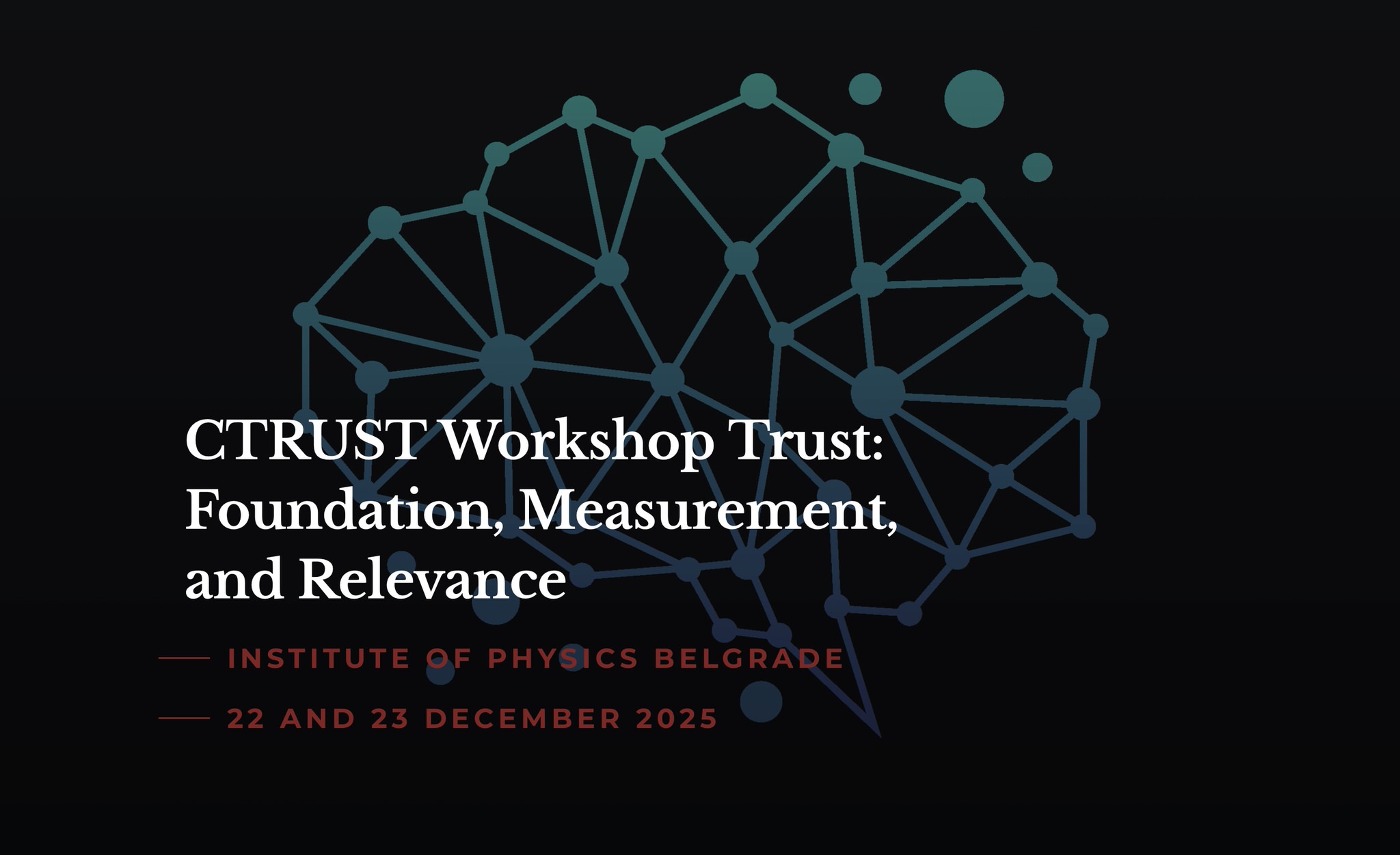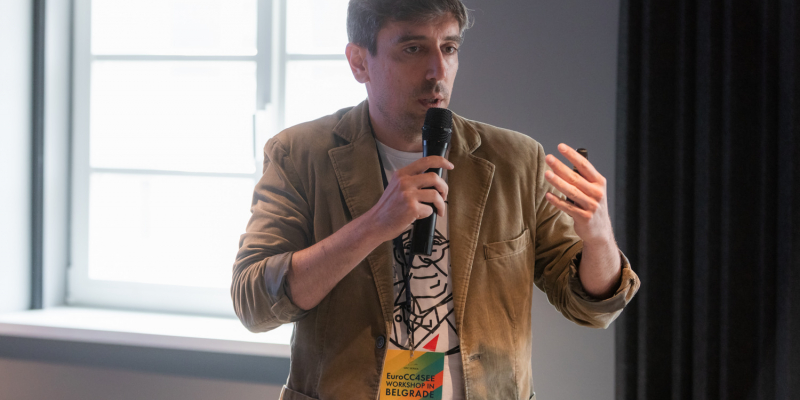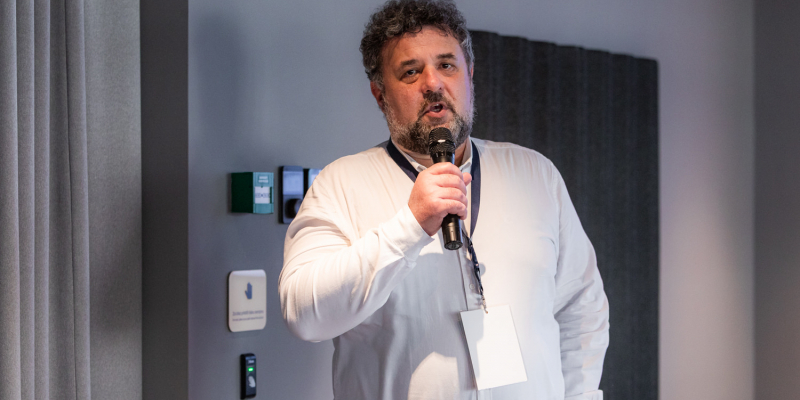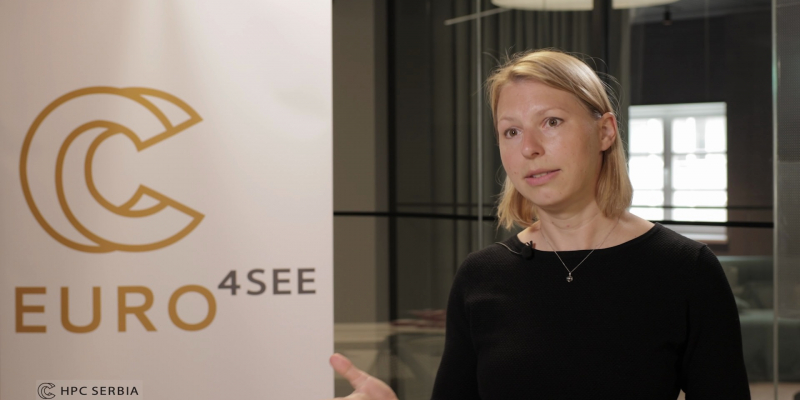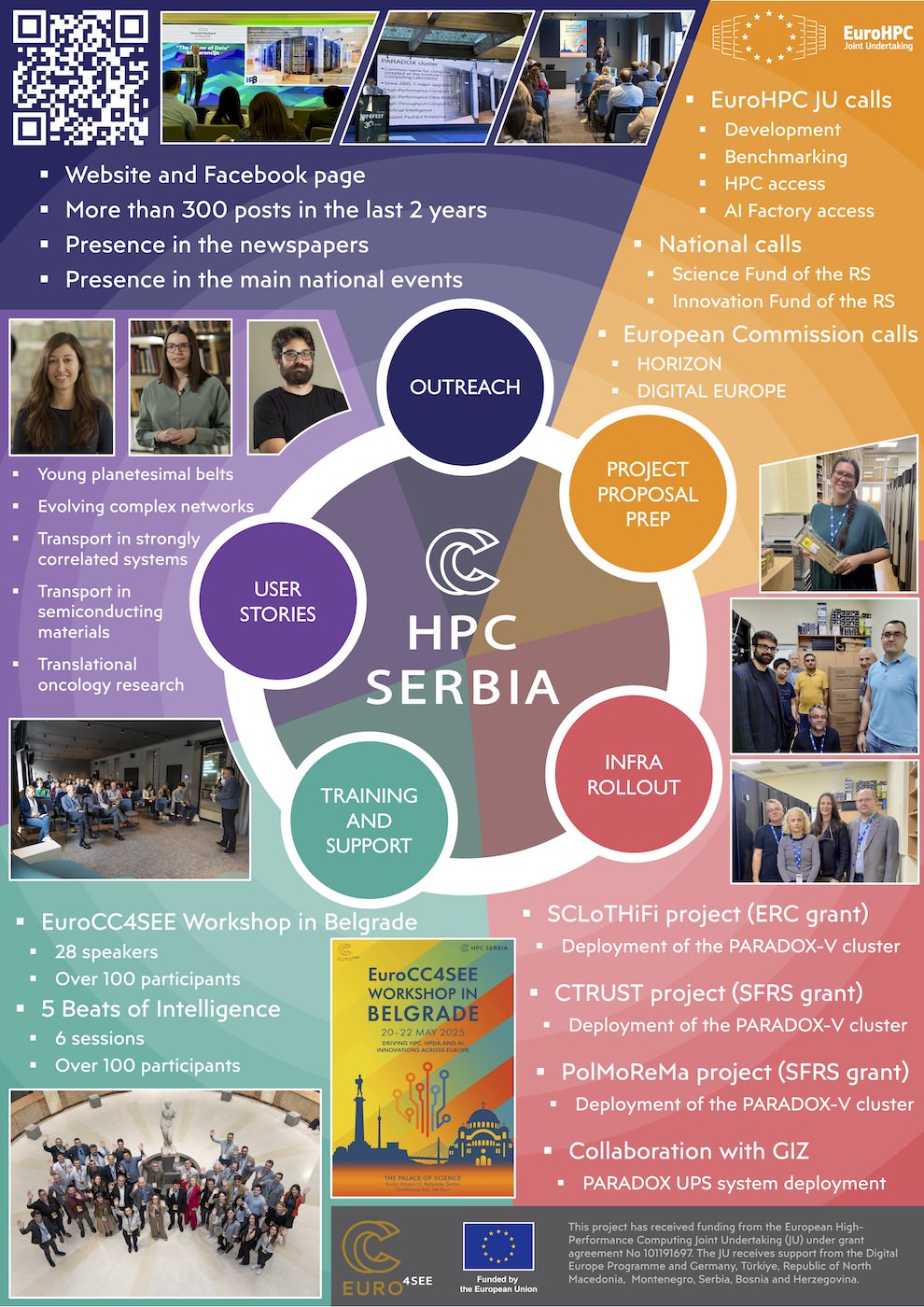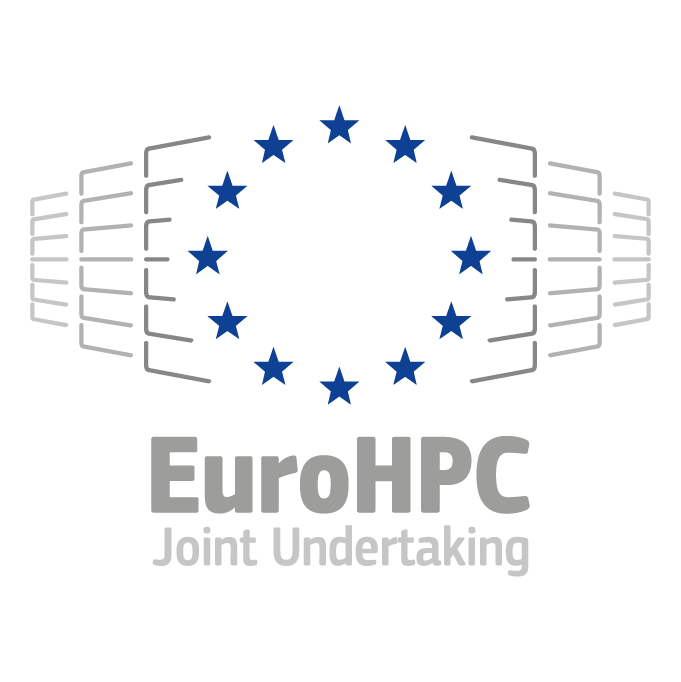In collaboration with NCC Montenegro, NCC Bosnia and Herzegovina, and NCC Türkiye, HPC Serbia successfully organized the 1.5-day online training event AI in Action for SMEs on 2–3 March 2026 as part of the EuroCC4SEE initiative. The event supported SMEs, start-ups, and researchers in adopting practical AI solutions, featuring real-world applications such as Time Series Forecasting, Explainable AI, and Data Anonymization, combined with hands-on HPC demonstrations. Training materials will be made available online soon.
Supercomputing in Europe Podcast
The new Supercomputing in Europe podcast features Panagiotis Barkoutsos, Senior Staff Quantum Solutions at IonQ. He covers what qubits are, the error-prone nature of quantum computers, and why error correction remains a major challenge. Panagiotis also describes how quantum algorithms are created and emphasizes the importance of interdisciplinary collaboration in advancing quantum technologies. Listen to discover how researchers and industry efforts are moving toward practical quantum solutions.
EuroCC4SEE – What Have We Learned and Where Do We Go Next?
At the IT2026 Conference organized from 24 to 28 February in Žabljak, Montenegro, representatives of the National Competence Centers from Serbia, Montenegro, Bosnia and Herzegovina, North Macedonia, and Türkiye gathered for a joint session titled EuroCC4SEE – What Have We Learned and Where Do We Go Next?
At the IT2026 Conference organized from 24 to 28 February in Žabljak, Montenegro, representatives of the National Competence Centers (NCCs) from Serbia, Montenegro, Bosnia and Herzegovina, North Macedonia, and Türkiye gathered for a joint session titled EuroCC4SEE – What Have We Learned an...
In collaboration with NCC Montenegro, NCC Bosnia and Herzegovina, and NCC Türkiye, we are pleased to announce a 1.5-day online training event, AI in Action for SMEs, taking place on 2–3 March 2026. The training is designed to support SMEs, start-ups, and researchers in adopting practical Art...
The New Booklet Success Stories features inspiring examples of how National Competence Centers and Centers of Excellence across Europe are leveraging supercomputing to tackle complex challenges and drive innovation. Success stories span several focal areas of HPC use: atmospheric and environmental...
The new HPC in Europe Portal, launched this fall, serves as the gateway to Europe's supercomputing ecosystem. It consolidates EU-funded high-performance computing resources, services, and expertise into a single platform, enhancing accessibility and connectivity in supercomputing.
The Portal aims to enhance visibility, accessibility, and engagement within Europe's HPC community. It promotes information sharing and collaboration by bringing together Success Stories, Use Cases, Training courses, Events, Codes, Best Practices, Expert support and consultancy, and Specialized HPC software.
"This portal will make Europe's HPC knowledge, services, and training more accessible than ever", said Anders Jensen, Executive Director of the EuroHPC Joint Undertaking. "It will empower users of all levels to engage with Europe’s growing supercomputing ecosystem".
This week’s Gray Scott Thursdays webinar will explore efficient CPU computing in C++ using the std::algorithm library, introduced with the C++17 standard.
As modern computing hardware becomes increasingly complex, developing performant applications across diverse architectures presents growi...
The online two-day course Modern Computer Vision & Model Distillation will be organized by AI Factory Austria AI:AT and Austrian Scientific Computing (ASC) from 3 to 4 March 2026.
This intermediate-level workshop introduces practitioners to modern toolkits, foundation-model distillation via...
The online two-day course Introduction to Deep Learning will be organized by AI Factory Austria AI:AT and Austrian Scientific Computing (ASC) from 3 to 4 March 2026. This course covers the essentials of neural networks, from artificial neural networks (ANNs) to convolutional neural networks (C...
The online course Linux Command Line will be organized by Austrian Scientific Computing (ASC) on 2 March 2026. ASC, formerly known as the Vienna Scientific Cluster, is a collaboration of several Austrian universities that provides supercomputer resources and technical support to its users. This...
Gray Scott’s Thursday webinars continue, with this week's session focusing on memory allocation, application profiling, and their importance. Join this Thursday, 26 February 2026.
Memory issues have become a significant challenge in applications, not only due to bandwidth limitations but also b...
The webinar titled Learning electronic structure from X-ray spectroscopy: Multiplet theory, data, and high-performance computing, organized by the EuroCC National Competence Center Sweden (ENCCS), will be held on 3 March 2026.
Understanding how electrons behave in complex materials is key to t...
The CTRUST Workshop Trust: Foundations, Measurement, and Relevance, held in December 2025 at the Institute of Physics Belgrade, brought together researchers from physics, computer science, social sciences, psychology, and artificial intelligence to discuss interdisciplinary approaches to the study of collective trust in online and social systems. The workshop was a two-day hybrid event organized by the CTRUST project, together with HPC Serbia.
As part of our mission to strengthen the adoption of high-performance computing, high-performance data analysis, and artificial intelligence across society, HPC Serbia has established several collaborations with public sector institutions in Serbia. These partnerships aim to support the development...
The startup Moveo, founded by Vladimir Jeftović, is developing simultaneously in two directions: in the field of healthcare, as well as advanced AI analytics and optimization tools. In the medical field, the company based in Serbia, develops tools for the prevention of neurological complications c...
Dr. Luka Ilić, who previously worked at the Institute of Physics Belgrade, is now part of the Atmospheric Composition Group at the Barcelona Supercomputing Center (BSC), where he investigates the global movement and climate impact of desert dust using advanced high-performance computing (HPC)...
The Institute of Physics Belgrade (IPB) has established a long-term collaboration with Hewlett Packard Enterprise (HPE) in the design, deployment, and evolution of the PARADOX high-performance computing cluster, the national flagship supercomputing system supporting research and innovation in...
Germany offers a diverse array of high-performance computing (HPC) resources across various levels and purposes, backed by a well-established network of institutions — from individual research organizations and regional centers to federal facilities and European-level infrastructures. These resourc...
HPC Serbia plays a central role in fostering regional cooperation throughout Southeast Europe by linking national competence centers, research institutions, and industry partners within the wider EuroCC and EuroHPC frameworks. Initiatives like EuroCC4SEE allow HPC Serbia to enhance cross-border co...
Recently, HPC Serbia participated in the all-hands meeting of the CASTIEL 2, EuroCC 2, and EuroCC4SEE projects, held from 23 to 25 September 2025, in Tallinn, Estonia. The event gathered National Competence Centers (NCCs) and Centers of Excellence (CoEs) in HPC across Europe, where participants celebrated successes, discussed obstacles, and collaborated to shape the future of HPC in Europe.
The poster sessions stood out as a highlight of the event, providing NCCs and CoEs with the opportunity to showcase their latest activities and achievements, while demonstrating how HPC fuels innovation in fields such as engineering, climate science, and healthcare. Rather than being passive displays, these sessions promoted active engagement, allowing attendees to ask questions, share feedback, and explore new collaboration opportunities.
The meeting insights emphasized that advancing sustainability in HPC relies on creating innovative funding models and forming new partnerships. Moreover, training and outreach efforts should be inclusive and accessible to engage all sectors. Both formal and informal collaborations were recognized as essential for fostering innovation, with future cooperation offering chances to leverage past successes and tackle emerging challenges.
